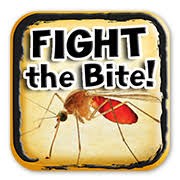
Summer is here, and so are those pesky little creatures that leave us with an itchy reminder of just how annoying they really are! Insects (including mosquitoes, ticks, and some flies) can spread diseases (including Zika, Dengue, and Lyme Disease). Many of these diseases cannot be prevented or treated with a vaccine or medication. Most reactions to insect bites and stings are mild, resulting in little more than redness, itching, stinging or minor swelling at the site. On rare occasions, insect bites and stings (such as those from a bee, wasp, hornet, or fire ant) may result in a more severe reaction requiring emergency medical attention. Here are some simple measures you can take to reduce your risk and protect yourself from bites before they happen.
Prevention
- Avoid outdoor activities during twilight, dawn, and dusk since some insects are more active during these times.
- Wear long-sleeved shirts, long pants, and hats to minimize the areas of exposed skin; shirts should be tucked in.
- Use EPA-registered insect repellents that contain at least 20% DEET. Some products that may be used for protection against mosquitoes, ticks, and other bugs are Cutter Backwoods and Off! Deep Woods.
- Avoid bugs by choosing accommodations that are air-conditioned or have good window and door screens so bugs cannot get inside.
When to seek Medical Care
- Symptoms are not just located at the site of the bite or sting.
- Hives: Irregular, raised red blotchy areas on the skin that are very itchy.
- The bite appears infected: Redness with or without pus, warmth, and/or a fever.
- Shortness of breath.
- Chest tightness or pain.
- Sensation of the throat closing or difficulty speaking or swallowing.
- Fainting or weakness.
- Nausea, cramps or vomiting.
Treatment
MILD REACTIONS
- Move to a safe area to avoid more bites or stings.
- If needed, remove the stinger by flicking it with your finger or scraping it out of the skin with a credit card.
- Wash the area with soap and water.
- Apply a cool compress. Use a cloth dampened with cold water or filled with ice. You can also use a bag of frozen vegetables. This helps reduce pain and swelling.
- If the bite or sting is on an arm or leg, elevate it.
- Apply a cream, gel or lotion to the injured area. Use over the counter products containing ingredients such as hydrocortisone or lidocaine to help control pain. Use creams such as calamine lotion, products containing colloidal oatmeal or a baking soda/water paste to help soothe itchy skin.
- Use over the counter oral medications as directed. Try a pain reliever, such as acetaminophen (Tylenol) or ibuprofen (Advil, Motrin IB) or an antihistamine (Benadryl, Chlor-Trimeton, others).
- Home treatment is often all that is needed to relieve the symptoms of a mild reaction. Usually the signs and symptoms of a bite or sting disappear in one or two days. If you are concerned, call your doctor.
SEVERE REACTIONS
Call 911 or your local emergency number if the injured person experiences:
- Difficulty breathing
- Swelling of the lips, eyelids or throat
- Dizziness, faintness or confusion
- Rapid heartbeat
- Hives
- Nausea, cramps or vomiting
Take these actions immediately while waiting for medical help:
- Ask the person if he or she is carrying an epinephrine autoinjector (EpiPen, others) to treat an allergic reaction.
- If the person says he or she needs to use an autoinjector, ask whether you should help inject the medication. This is usually done by pressing the autoinjector against the person's thigh and holding it in place for several seconds. The device can inject directly through clothing if needed.
- Loosen tight clothing and cover the person with a blanket. Do not give him or her anything to drink.
- Turn the person on their side to prevent choking if he or she is vomiting.
- Begin CPR if the person shows no signs of circulation, such as breathing, coughing or movement.
RESOURCES
- If you have a bug bite that is of concern, contact the Student Health Center at 209-228-2273 and schedule an appointment to see a health care professional.
https://wwwnc.cdc.gov/travel/page/avoid-bug-bites
http://www.mayoclinic.org/first-aid/first-aid-insect-bites/basics/art-20056593

